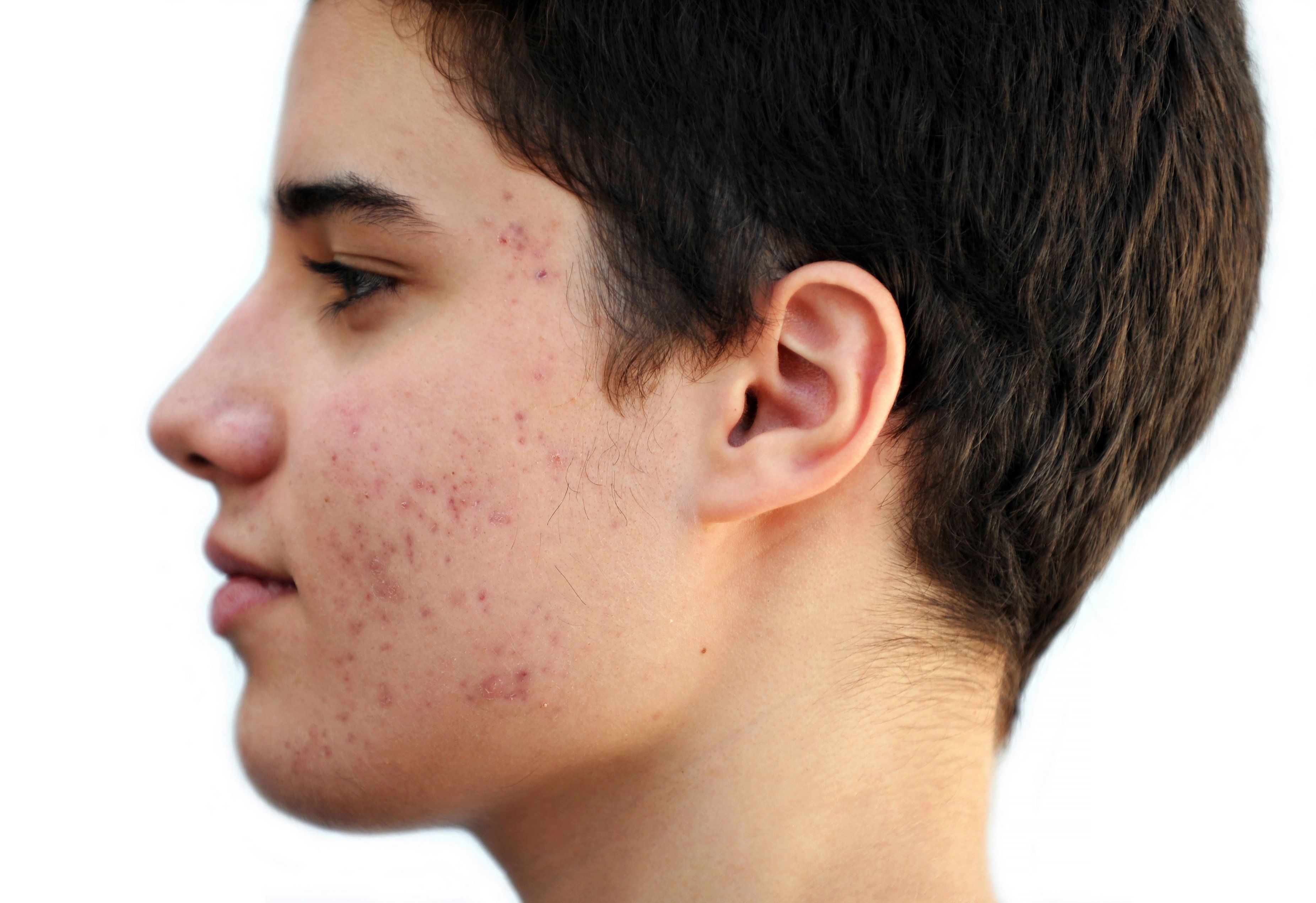- Acne
- Actinic Keratosis
- Aesthetics
- Alopecia
- Atopic Dermatitis
- Buy-and-Bill
- COVID-19
- Case-Based Roundtable
- Chronic Hand Eczema
- Chronic Spontaneous Urticaria
- Drug Watch
- Eczema
- General Dermatology
- Hidradenitis Suppurativa
- Melasma
- NP and PA
- Pediatric Dermatology
- Pigmentary Disorders
- Practice Management
- Precision Medicine and Biologics
- Prurigo Nodularis
- Psoriasis
- Psoriatic Arthritis
- Rare Disease
- Rosacea
- Skin Cancer
- Vitiligo
- Wound Care
Article
Managing acne female-to-male transgender persons
Author(s):
As both severe acne and transgenderism are independently associated with higher rates of depression and suicide, it may be advisable that transgender adolescents are monitored for acne once testosterone treatment has begun. Given the potential risks - some 41% of transgender adults have at some point attempted suicide - acne should be treated even if only mild, says Dr. Lucía Campos-Munoz.
Severe acne and transgenderism are independently associated with higher rates of depression and suicide. Given the potential risks, female-to-male transgender adolescents should be monitored carefully for acne once testosterone treatment has begun. (joserpizarro - stock.adobe.com)

In recent years the number of adolescents who feel that they do not identify with the gender that was assigned to them at birth and who have sought gender reassignment treatment - in the form of hormones or surgery - has increased.
Testosterone is frequently prescribed to female-to-male transgender persons to aid masculinization by promoting voice deepening and a masculine pattern of hair, fat, and muscle distribution. However, testosterone is associated with a number of dermatologic adverse effects, including increased presence and severity of acne during the first year of treatment and long-term androgenetic alopecia.
As both severe acne and transgenderism are independently associated with higher rates of depression and suicide, it may be advisable that, once testosterone treatment has begun, transgender adolescents are monitored for the appearance of acne, says Dr. LucÃa Campos-Muñoz, from the Hospital ClÃnico San Carlos in Madrid. Given the potential risks - some 41% of transgender adults have at some point attempted suicide - acne should be treated even if only mild, she adds.
Dr Campos-Muñoz has some experience in treating such patients as between 2016 and 2017, five female-to-male transgender adolescents, aged 16-18, presented at the Hospital ClÃnico San Carlos in Madrid with testosterone-associated acne of differing intensity. Four had acne before beginning testosterone treatment, and all of them experienced an increase in its intensity.
Current guidelines are appropriate for treating acne in female-to-male transgender adolescents but with some notable differences, says Dr Campos-Muñoz. In general, female-to-male transgender patients should be given male-oriented treatment, while recognising that the potential of conception still exists, she says, but emphasising that “neither antiandrogenic agents nor contraceptives can be prescribed because this would conflict with the masculinization sought”.
Isotretinoin is teratogenic so all patients with internal genitalia must be warned that pregnancy should be avoided. “Such patients may find themselves in testosterone-associated amenorrhea and may therefore believe they cannot become pregnant. The risk of gestation in female-to-male transgender individuals undergoing testosterone treatment is difficult to quantify, but it is real,” Dr Campos-Muñoz says. “Therefore, any individuals with female internal genitalia should be considered of child-bearing potential, even if he is in amenorrhea.” Pregnancies have been described in testosterone-treated female-to-male transgender individuals, up to 20% of whom were in amenorrhoea.
Although unlikely, hepatotoxicity is possible with testosterone treatment, and use of tetracyclines or isotretinoin also pose a liver function risk. “For this reason, when treating a patient using testosterone with tetracyclines or isotretinoin, frequent monitoring of liver function during treatment is recommended,” says Dr Campos-Muñoz.
It has been reported that isotretinoin does not cause depression in the general population, but this has not been confirmed in transgender individuals who have higher rates of depression and suicide.
“Until its safety in such individuals is verified, it would seem reasonable that isotretinoin be used only with great care in those with a history of depression or who become depressed during treatment,” she says.
Two of the five adolescents who presented at the Hospital ClÃnico San Carlos had severe acne and were treated with isotretinoin: one tolerated the treatment well for 4 months, but then decided to stop treatment as he was in complete remission; the other stopped after three months having associated the treatment with a bout of depression. In both cases hepatic function was monitored every four weeks and barrier contraception was recommended for sexual intercourse. The remaining patients were treated with doxycycline, 0.05 topical tretinoin or 3% benzoyl peroxide, and those on doxycycline had their liver function monitored every 8 weeks.
All patients tolerated and responded well to therapy, but follow-up was short so return of acne cannot be excluded, particularly given the patients continued use of testosterone and their age, Dr Campos-Muñoz says.
She highlights that when treating transgender patients, clinicians should use the name and personal pronoun that the particular individual prefers and recognise that examination of the thorax and chest for acne may be particularly awkward for them.
References:
Wierckx K, Van de Peer F, Verhaeghe E, Dedecker D, Van Caenegem E, Toye K. Short- and long-term clinical skin effects of testosterone treatment in trans men. J Sex Med. 2014;11:222-229.
Durwood L, McLaughlin KA, Olson KR. Mental health and self-worth in socially transitioned transgender youth. J Am Acad Child Adolesc Psychiatry. 2017;56:116-123.
Campos-Muñoz L, López-De Lara D, RodrÃguez-Rojo ML, Conde-Taboada A, López-Bran E. Transgender adolescents and acne: A cases series. Pediatr Dermatol. 2018;00:1–4. https://doi.org/10.1111/
Light AD, Obendin-Maliver J, Sevelius JM. Transgender men who experienced pregnancy after female-to-male gender transitioning. Obstet Gynecol. 2014;124:1120-1127.
Huang YC, Cheng YC. Isotretinoin treatment for acne and risk of depression: a systematic review and meta-analysis. J Am Acad Dermatol. 2017;76:1068-1076.
Newsletter
Like what you’re reading? Subscribe to Dermatology Times for weekly updates on therapies, innovations, and real-world practice tips.











